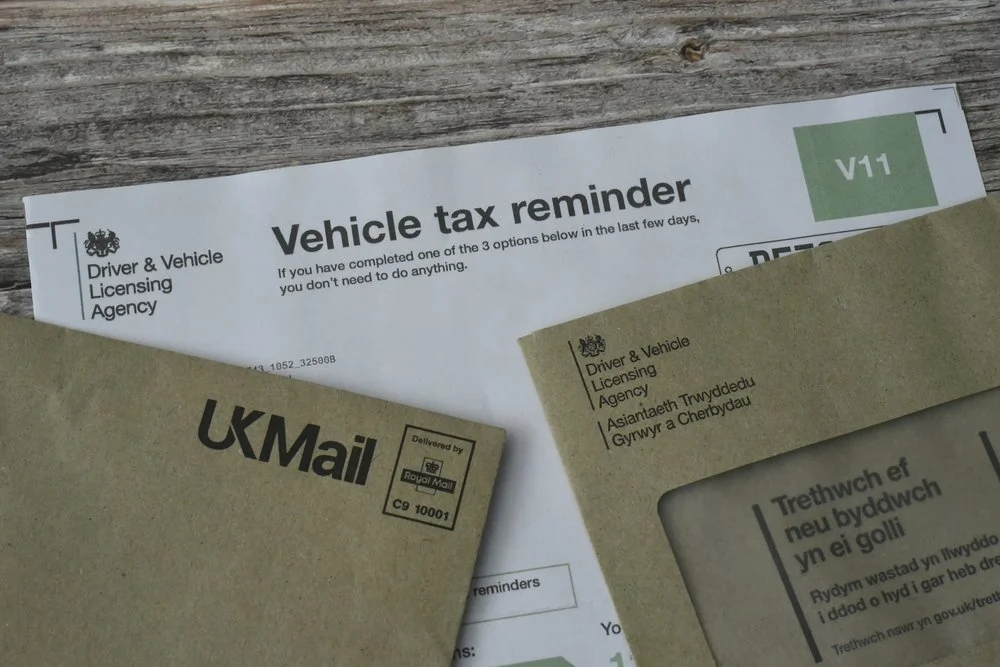Autumn Budget 2025: Latest Updates Show EV Salary Sacrifice Remains the Best Protected Benefit
Source: Shutterstock
In welcome news for electric vehicle drivers, Chancellor Rachel Reeves abandoned controversial plans to raise income tax rates just 12 days before the 26 November Budget. The reversal follows improved forecasts from the Office for Budget Responsibility, which reduced the estimated fiscal gap from £35 billion to closer to £20 billion.
The Chancellor will still raise around £30 billion through targeted measures across specific areas. For employees and employers evaluating salary sacrifice schemes, the landscape is now crystal clear: electric car salary sacrifice stands as the most protected, stable, and valuable benefit available.
Electric Car Salary Sacrifice: The Standout Protected Benefit
The budget developments reinforce what many already knew: The Electric Car Scheme offers unmatched value and certainty. The Benefit-in-Kind rate for electric vehicles remains at just 3% for 2025/26, rising incrementally to 9% by 2029 - dramatically lower than the maximum 37% applied to petrol and diesel vehicles.
This protection reflects government commitment to the UK's 2030 zero-emission vehicle targets and broader Net Zero initiatives. Whilst other benefits face restrictions, company electric car schemes enjoy complete stability with no speculation threatening their tax advantages.
The savings are substantial. Understanding how salary sacrifice works shows that someone earning £40,000 annually could save approximately £200-300 per month on a Nissan Leaf compared to personal leasing. All costs—insurance, maintenance, tyres, and breakdown cover—are included in one simple pre-tax payment.
The savings are even more accessible through used electric cars. The Electric Car Scheme now offers used EV salary sacrifice, with significantly lower monthly payments that make electric driving available to more employees.
For example, a used Nissan Leaf or Renault Zoe could cost £150-200 per month through salary sacrifice - compared to £350-400 for new equivalents - while still including all insurance, maintenance, and breakdown cover. With used electric car prices falling fast, employees on lower salaries can now access the same 20-50% salary sacrifice savings, widening participation across your entire workforce and accelerating your business's transition to Net Zero.
The Electric Car Scheme UK exemplifies this value, offering Complete Employer Protection from day one with zero setup costs for businesses. This makes it genuinely risk-free whilst delivering significant employee benefits that support recruitment and retention.
How Other Salary Sacrifice Benefits Compare
The budget developments highlight the unique position of electric car salary sacrifice schemes. Whilst restrictions apply to other benefits, EV schemes remain fully protected.
Cycle to Work Schemes Face New Caps
The Cycle to Work scheme will likely see new spending restrictions, with the Chancellor expected to reintroduce a cap. The original £1,000 limit was removed in 2019, but Treasury sources indicate new limits will prevent what they describe as non-essential high-end purchases.
The scheme's cost to the Treasury has grown from £55 million in 2019/20 to £130 million in 2024/25. Whilst the cycling industry highlights £573 million in annual economic benefits, the exact new cap hasn't been confirmed, with speculation suggesting £2,000 to £4,000.
For employees wanting green transport solutions, this makes salary sacrifice electric cars even more attractive. Unlike cycles with new restrictions, electric vehicles through salary sacrifice deliver unlimited value with complete government backing.
Pension Salary Sacrifice Under Review
Research shows over 90% of employers anticipate pension salary sacrifice changes. HMRC research earlier this year explored various scenarios, with a £2,000 annual threshold appearing most likely - above which National Insurance exemptions would no longer apply.
In 2023/24, National Insurance reliefs on pension contributions cost £23.5 billion, whilst income tax relief cost £28.5 billion. The Treasury views this as a significant revenue opportunity, making pension vs EV salary sacrifice comparisons increasingly relevant for employees and employers planning benefits strategies.
Advisers note that changes could affect wage increases as companies offset costs. For businesses, offering electric car schemes provides a protected alternative that delivers immediate value without budget uncertainty.
Pay-Per-Mile Speculation Increases
Source: Shutterstock
Speculation around distance-based road charging has intensified, with growing discussion about implementing pay-per-mile taxation as electric car adoption accelerates. The Treasury faces declining Vehicle Excise Duty revenues and is actively exploring replacement options, though the timeline and structure remain contested.
Importantly, any pay-per-mile system would favour electric vehicles with significantly lower per-mile rates, reflecting their reduced environmental impact and lighter infrastructure damage. For employees using EV salary sacrifice schemes, the impact would be minimal compared to petrol and diesel alternatives - reinforcing the long-term cost advantage of switching to electric. Understanding how much it costs to run an electric car shows EVs maintain substantial savings regardless of future taxation changes.
Use our Pay-per-Mile Road Tax Calculator to See How Much You Could Pay
Why EV Salary Sacrifice Stands Out
The budget developments make the case for electric car salary sacrifice clearer than ever. Whilst traditional benefits face restrictions—pension caps, cycle to work limitations, and threshold freezes—company electric car schemes offer unmatched stability.
The combination creates exceptional value:
Protected tax advantages through legislated Benefit-in-Kind rates until 2029
Comprehensive savings of 20-50% versus personal leasing
All-inclusive packages covering everything from home charging to maintenance
Zero employer risk with market-leading protection
A mix of electric and hybrid cars available - The Electric Car Scheme offers a mix of efficient, clean used and new hybrid and electric cars.
For businesses, offering an electric car scheme delivers a valuable, cost-neutral benefit supporting recruitment whilst demonstrating commitment to sustainability.
The breadth of choice matters too. From affordable EVs under £250 monthly to family-friendly seven-seaters, from small city cars to premium SUVs, there's an option for every lifestyle.
What the Budget Means for Your Business
The 26 November Budget will bring final clarity, but the direction is unmistakable: electric car salary sacrifice represents the most stable and protected employee benefit available. Whilst pension contributions face potential caps and cycle schemes see restrictions, EV salary sacrifice schemes deliver guaranteed savings backed by government policy.
For employees evaluating options, the case is compelling. A salary sacrifice scheme secured now locks in 20-50% savings with complete protection. From Tesla alternatives to BMW models, from Volkswagen EVs to Hyundai options, there's remarkable choice.
The practical benefits extend beyond savings. Understanding how long it takes to charge an electric car, accessing the best EV charging apps, and maximising electric car range all contribute to seamless ownership.
Plus, with The Charge Scheme, employees can now salary sacrifice their EV charging costs, saving an additional 20-50% on home, work, and public charging. This comprehensive approach makes The Electric Car Scheme the most complete solution available.
Secure Your Savings Before 26 November
For Employees: Get your instant quote to secure:
20-50% savings with BiK rates locked until 2029
Brand-new electric car with comprehensive insurance and maintenance
Complete protection from budget uncertainty
Additional charging savings through The Charge Scheme
For Employers: Book a demo to discover:
Zero setup costs with complete employer protection
Average £56,000 annual NIC savings per participating business
5-star rated service trusted by thousands
Support your employee benefits strategy whilst advancing Net Zero goals
The budget developments confirm what businesses already know: electric car salary sacrifice offers unmatched certainty, substantial savings, and government backing aligned with national environmental priorities. Whilst other benefits face mounting restrictions, now is the ideal time to secure the advantages of EV salary sacrifice before the Budget brings final clarity on 26 November.
Join Us: Budget Breakdown for HR & Finance Teams
With the Budget confirmed for 26 November, join us on Friday 28 November at 11am for an exclusive live session where we'll break down exactly what the Budget means for your business.
Our expert panel - including Thom Groot, CEO of The Electric Car Scheme - will cut through the noise to deliver:
Immediate cost impacts on payroll and benefits
Your 2026 strategy checklist
How to support employee and employer financial resilience
This is a one-time live session with limited spaces. Secure your spot now to get clarity on how Budget changes affect your organization's people and spending decisions.
Are you an employer?
BOOK A DEMOAre you an employee?
SEE AVAILABLE CARSYou might also like…
The information provided on this blog is for general informational purposes only and should not be construed as tax advice or accountancy services. We are not qualified accountants or tax advisors, and nothing on this site should be relied upon as professional advice tailored to your specific circumstances. Tax laws and regulations are complex and subject to change, and individual situations vary considerably. For specific guidance regarding your tax obligations, financial planning, or accounting matters, we strongly recommend that you consult with a qualified accountant, tax advisor, or other appropriate professional who can assess your particular situation. We accept no liability for any loss or damage arising from reliance on the content provided on this blog.
Last updated: 17/11/2025
Our pricing is based on data collected from The Electric Car Scheme quote tool. All final pricing is inclusive of VAT. All prices above are based on the following lease terms; 10,000 miles pa, 36 months, and are inclusive of Maintenance and Breakdown Cover. The Electric Car Scheme’s terms and conditions apply. All deals are subject to credit approval and availability. All deals are subject to excess mileage and damage charges. Prices are calculated based on the following tax saving assumptions; England & Wales, 40% tax rate. The above prices were calculated using a flat payment profile. The Electric Car Scheme Limited provides services for the administration of your salary sacrifice employee benefits. The Electric Car Scheme Holdings Limited is a member of the BVRLA (10608), is authorised and regulated by the FCA under FRN 968270, is an Appointed Representative of Marshall Management Services Ltd under FRN 667174, and is a credit broker and not a lender or insurance provider.
Copyright and Image Usage: All images used on this website are either licensed for commercial use or used with express permission from the copyright holders, in compliance with UK and EU copyright law. We are committed to respecting intellectual property rights and maintaining full compliance with applicable regulations. If you have any questions or concerns regarding image usage or copyright matters, please contact us at marketing@electriccarscheme.com and we will address them promptly.






